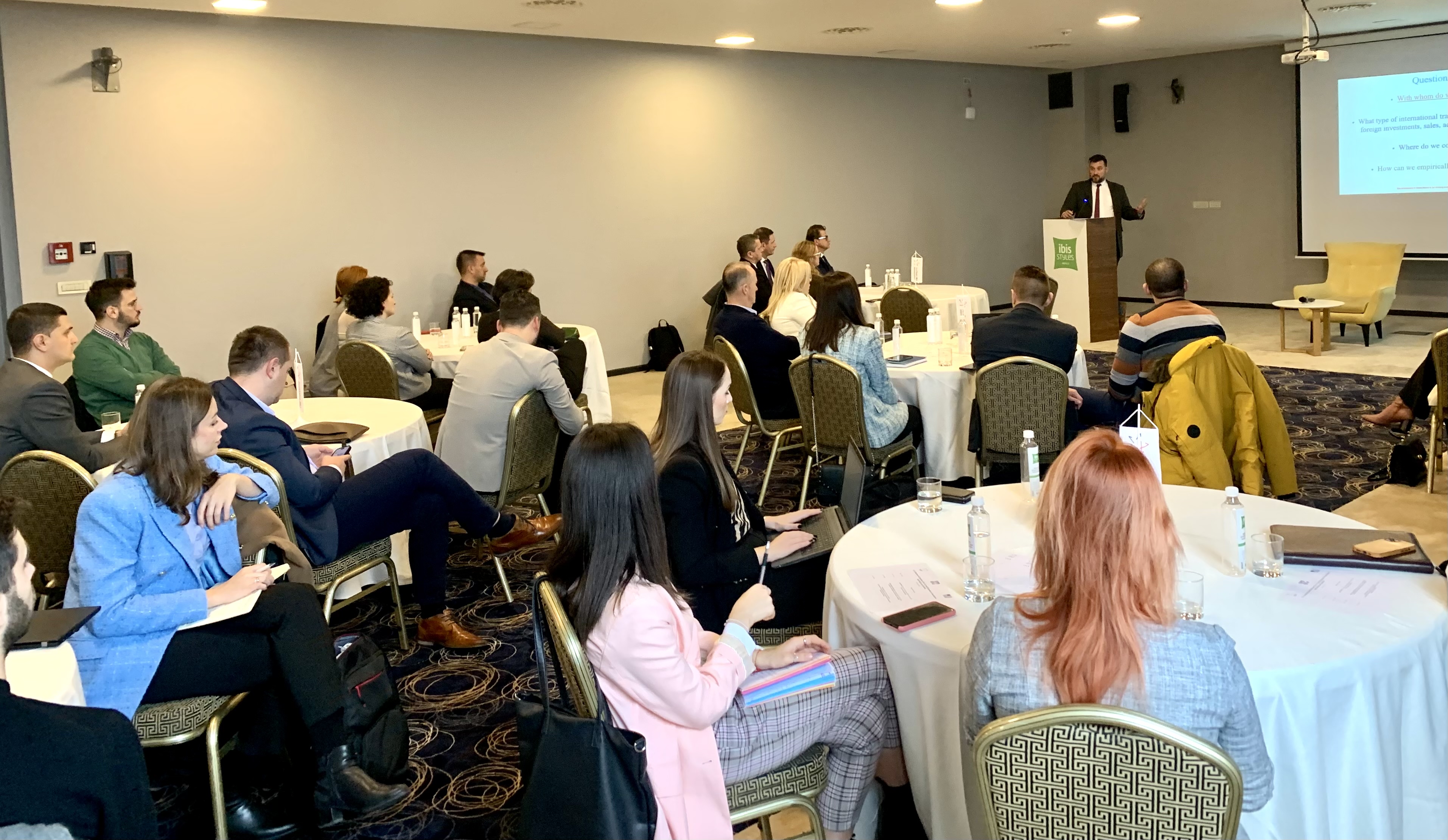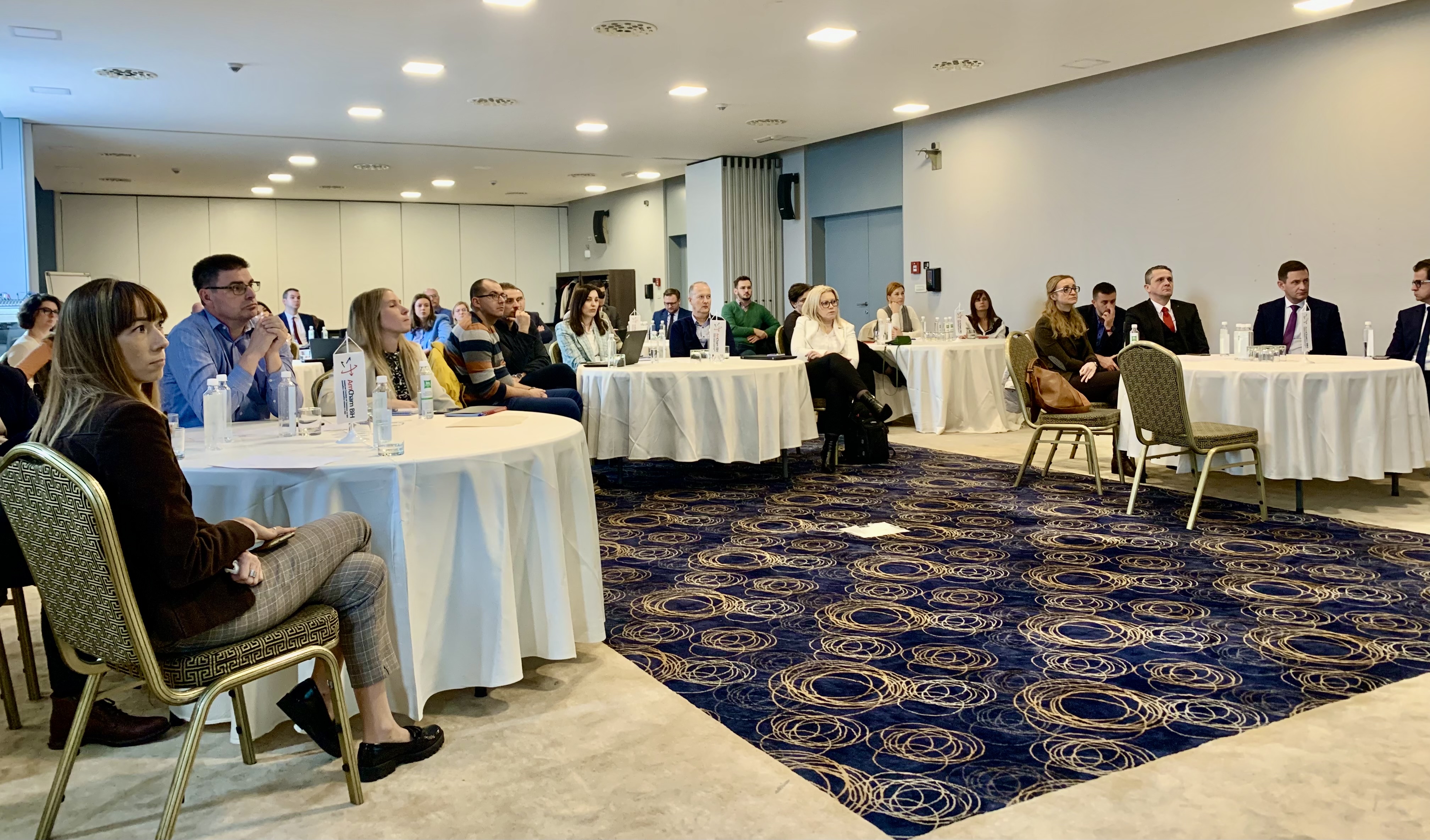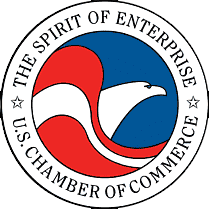The American Chamber of Commerce in BiH continues the "Business Integrity Initiative" project for its members in cooperation with the U.S. Embassy in Bosnia and Herzegovina and Net Consulting and with the help of the Center for International Private Enterprise (CIPE). As part of the project, the lecture "U.S. Sanctions and Business: How to Avoid Exposure to Sanctioned Individuals and Entities" was held.
Those present had the opportunity to hear about the application of compliance at different levels, the adaptation of the organization's internal policies to the law and the rules and regulations imposed by partners and collaborators, and in light of the identification of advantages and motives for having such a program. Since the purpose of the compliance program is to effectively ensure the fulfillment of legal obligations, norms and standards, as well as a culture that promotes ethical behavior within the organization, such programs do not only affect the internal stakeholders of one company's solutions, but also include society and other companies. The advantages of such a program are the detection and stopping of illegal and unethical activities, improved communication within the organization, prevention of financial losses and fines, and protection of the company's reputation.
The consequences of doing business with sanctioned persons were also addressed, as well as the sanctioning processes themselves, as well as the obligations and resources that one should turn to when a company wants to avoid exposure to such persons and organizations.
Many participants in the private sector are aware that ethical companies, which have dedicated staff as well as defined rules of ethical behavior, can respond and act faster and more efficiently in crisis situations. Integrity-driven organizations do this consciously and build it into daily operations so that it permeates the entire organization.
This environment of openness and trust helps orient new hires to the idea that acting with integrity is just "the way things are done around here." Integrity is often a priority in an organization's cultural standards. This emphasis tells both employees and clients that long-term sustainability is more important than short-term opportunism.













